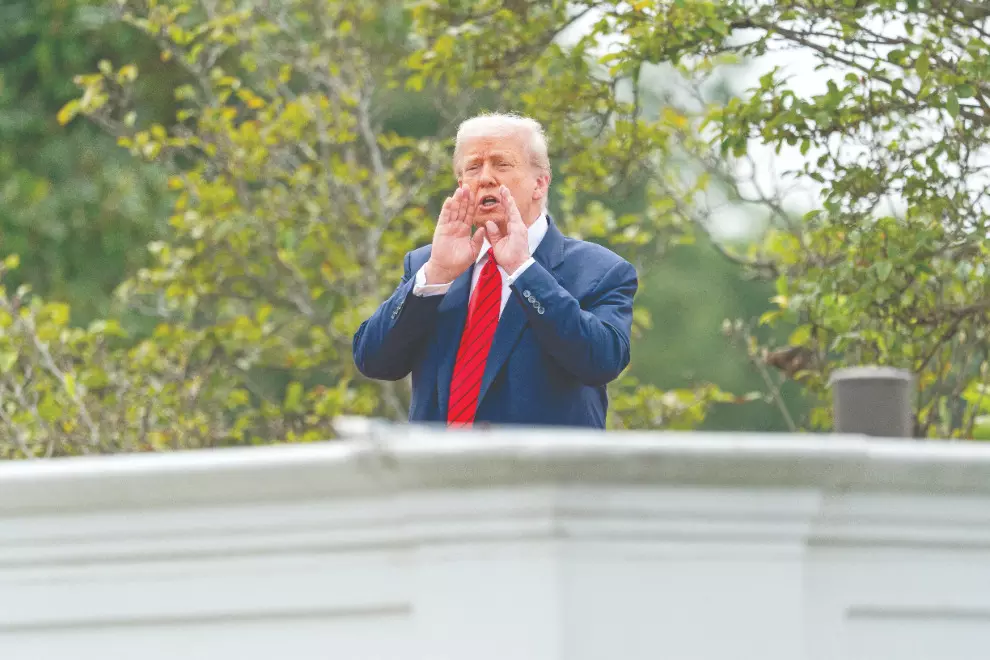Trump’s reciprocal tariffs come into effect globally, including India

New Delhi/Washington: A fresh round of US tariffs on Indian goods took effect on Thursday, following a series of executive actions by former President Donald Trump. The newly implemented 25 per cent duties mark a significant escalation in trade measures targeting India, with further levies expected in the coming weeks.
In a post made shortly after midnight on Truth Social, Trump declared, “It’s Midnight!!! Billions of Dollars In Tariffs Are Now Flowing Into The United States Of America!” The statement came as the latest reciprocal tariffs announced last week officially came into force.
Trump, in another post, stated, “Reciprocal tariffs take effect at midnight tonight! Billions of dollars, largely from countries that have taken advantage of the United States for many years, laughing all the way, will start flowing into the USA.” He added that the only thing he saw as a threat to the country’s economic trajectory was “a radical left court that wants to see our country fail.”
The Executive Order titled Further Modifying The Reciprocal Tariff Rates was issued last week, outlining new duties on exports from nearly 70 countries. India was among those affected, with an immediate 25 per cent tariff applied across a range of goods.
Additionally, on Wednesday, Trump announced a second 25 per cent tariff targeting India’s energy imports from Russia. This additional measure will be implemented on August 27, raising the total US tariff burden on Indian exports to 50 per cent — among the steepest imposed on any single country.
India, in response, stated that the move lacked justification. “India considers the targeting of its exports to be unjustified and unreasonable,” a government spokesperson said. The statement added that India would “take all necessary steps” to protect its economic interests and national security.
The increased tariffs come amid ongoing but inconclusive trade talks between the two nations. Despite multiple negotiation rounds in recent months, the two sides have failed to bridge differences on sensitive sectors such as agriculture and dairy.
The tariffs have drawn sharp reactions from Indian-American leaders and organisations in the US. Indiaspora, a non-profit representing the Indian diaspora, issued a statement expressing concern but voiced hope for a resolution.
“We believe the current setback in what is otherwise an enduring, robust and broad-based people-to-people relationship will be temporary,” Indiaspora said. Highlighting the contributions of over five million Indian-Americans to US society,
the organisation noted that the community acts as “a living bridge between the world’s two largest democracies.”
Ajay Bhutoria, a prominent Indian-American community leader and former advisor to President Joe Biden, expressed strong opposition to the tariff hikes. “India supplies nearly half of America’s affordable generic drugs. These tariffs will inflate prescription prices, hitting families, seniors, and small businesses hard,” he said.
He also pointed out the expected rise in consumer prices for everyday Indian products such as spices, lentils, and traditional clothing. “Reports estimate apparel and footwear costs could rise 37 per cent,” Bhutoria added.
Criticising what he described as a “double standard,” Bhutoria noted that while China received a 90-day pause on US tariffs, India — a democratic partner — is being penalised over its oil imports from Russia. “This risks undermining the USD 186 billion US-India trade partnership and our shared goal of reaching USD 500 billion by 2030,” he said.
Despite the current trade tensions, Bhutoria underscored the broader relationship between the two countries. “The US and India share a strong, vibrant partnership built on mutual respect, economic ties, and shared values. We must work through these challenges together.”
As the tariffs take effect, attention will turn to whether dialogue between New Delhi and Washington can resume in time to prevent further strain on a key bilateral relationship.



